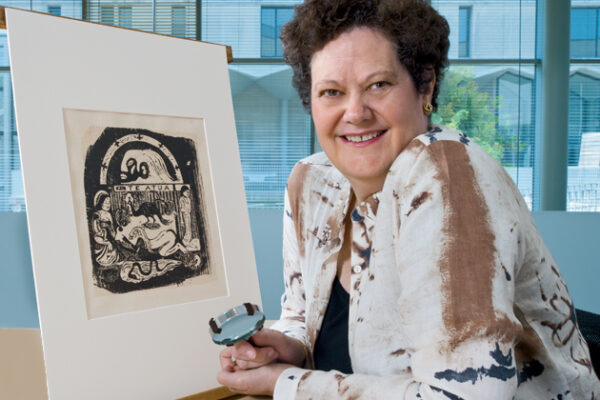World Series boon to St. Louis economy? Maybe not, economist says
While the St. Louis Regional Commerce and Growth Association claims the World Series will provide a $24.4 million economic boost to the area, a Washington University in St. Louis economist says it won’t change the area’s economic outlook as a whole.
Strike tobacco out of baseball and start with World Series, public health expert says
Sen. Dick Durbin (D-Ill.) and other legislators are calling for baseball players to stop using chewing tobacco on the field and in front of their fans. “This is an important public health issue,” says Douglas Luke, PhD, director of the Center for Tobacco Policy Research at the Brown School at Washington University in St. Louis. “Not only is smokeless tobacco use hazardous, but young people who use smokeless tobacco are more likely to also start smoking cigarettes.” Luke notes that smokeless tobacco use is a growing problem, particularly for the youngest baseball fans.
Brookings, WUSTL Academic Venture Fund grant recipients announced
The Brookings Institution, a nonprofit public policy organization based in Washington, D.C., and Washington University in St. Louis announce recipients of grants from the joint Academic Venture Fund. The purpose of the AVF is to support collaboration between scholars at WUSTL and the Brookings Institution, particularly long-term projects that impact research, education and policy.
Social Security increase is welcome but inadequate
Social Security recipients will receive a cost of living adjustment (COLA) of 3.6 percent beginning in 2012, the first increase since 2009. “COLA is welcome but will not fully maintain beneficiary purchasing power,” says Merton C. Bernstein, LLB, a nationally recognized expert on Social Security and the Walter D. Coles Professor Emeritus at Washington University in St. Louis School of Law. “The formula setting that rate does not meet fully the needs of Social Security recipients, especially when considering medical costs.”
Dinner explores legal history and feminist vision of sex equality in the workplace
Litigation and legislative reforms have achieved formal rights to equal treatment for women in employment. But women continue to perform disproportionate amounts of caregiving in the home, to suffer economic penalties for childbearing and to face discrimination on account of motherhood in the workplace. “The disconnect between formal equality and the deepening work-family conflict is no accident,” says Deborah Dinner, JD, legal historian and associate professor of law at Washington University in St. Louis.
University receives $3 million for new diabetes research center
Washington University in St. Louis has received a five-year, $3 million grant to establish a new center to develop better ways to prevent and treat type 2 diabetes in high-risk patients, including American Indians and Alaska Natives, says Debra Haire-Joshu, PhD, director of the new center.
Danforth Dialogues set model for civil discourse
A new series, called the Danforth Dialogues, demonstrates how persons with profoundly different views can engage each other forcefully and respectfully. Sen. John C. Danforth moderated the first discussion between Sen. Bob Casey, D-Pa., and Sen. Dan Coats, R-Ind. The series is co-sponsored by the John C. Danforth Center on Religion & Politics.
Brown School launches first social work-based social entrepreneurship program
Interest in social entrepreneurship — using innovation and enterprise to address social problems — has exploded, but training has always been from a business perspective. This fall, the Brown School at Washington University in St. Louis will be home to the first social entrepreneurship program based in a social work setting.
Privacy legal fights should focus on intrusion, not hurt feelings (VIDEO)
Privacy lawsuits in the United States usually seek damages for revealing embarrassing but true facts by the media— the so-called “disclosure tort” — but this is a “poor vehicle for grappling with the problems of privacy and reputation in the digital age,” says Neil M. Richards, JD, privacy law expert and professor at Washington University in St. Louis School of Law. “The disclosure tort has never really worked successfully,” he says. “It’s largely unconstitutional.” Richards notes that there are two existing privacy law concepts that may be good supplements or even replacements to the disclosure tort.
Paradise Sought
Art historian Elizabeth Childs reveals how expectations of an idyllic place informed artists’ work of the late 19th century, and how these works in turn framed perceptions of place thereafter.
Older Stories

